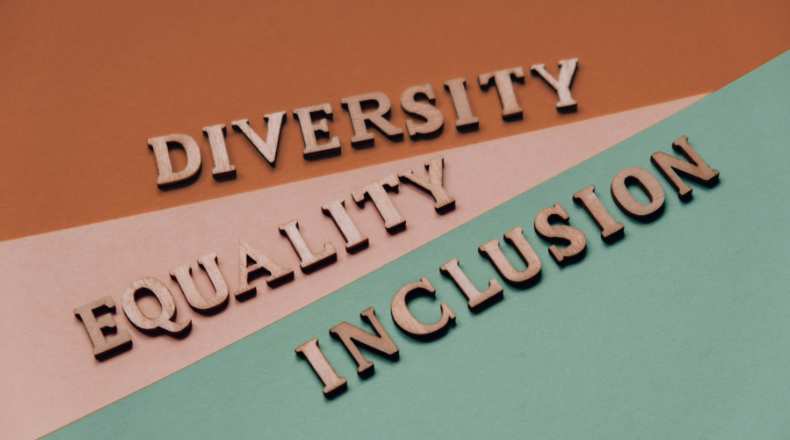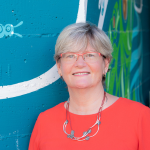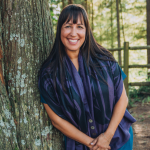AFP Greater Vancouver Chapter Hosts Session on Ethics and IDEA

In light of the dynamic societal change seen in movements such as #MeToo and Black Lives Matter, coupled with the murder of George Floyd in the U.S. and how the pandemic laid bare the inequities faced by many marginalized groups, AFP Global is reviewing its Code of Ethical Standards to “make sure that the standards our members live by are truly reflective of the experiences of the entire fundraising community,” says Mike Geiger, MBA, CPA, president and CEO of the Association of Fundraising Professionals (AFP) and the AFP Foundations for Philanthropy. “We must bring conversations about social justice and equality to the forefront.”
AFP adopted a set of ethical standards in 1964, which was amended in 2014, and which currently allows, among its 25 provisions, that a fundraiser “not engage in activities that harm the members’ organizations, clients or profession or knowingly bring the profession into disrepute” and “ensure that all solicitation and communication materials are accurate and correctly reflect their organization’s mission and use of solicited funds.”
As the focus on major gifts grew, the Donor Bill of Rights was created in 1993. Swinging towards a focus on the donor, it includes a stipulation that donors are to “receive appropriate acknowledgement and recognition.”

Later, in a commitment to work on diversity and inclusion, AFP developed its Statement of IDEA Principles, which includes the idea that we “recognize others as different but equal” and “explore potential underlying, unquestioned assumptions that interfere with inclusiveness,” according to Jennifer Johnstone, chair of AFP Canada, and president and CEO of Central City Foundation since 2006.
While the AFP task force, charged with reviewing and modernizing the Code of Ethical Standards to provide for guidance on social justice, anti-racism, and equity, finalizes its work, fundraisers are having similar discussions about IDEA and ethics in their communities.
This fall, Johnstone and Rowena Veylan created space for an ethics discussion at an Ethics and IDEA: Ask me Anything webinar put on by the AFP Greater Vancouver chapter on October 5, part of the chapter’s AFP Ethics Awareness Month activities.

“It is such an interesting time to be a fundraiser right now,” says Veylan, founder, and lead instructor of The New School for Fundraising. “Everything is on the table, and we are questioning all of it. There is equity, diversity and inclusion work happening across the country both within organizations and by many individuals.”
“More recently, many questions have emerged about this donor-centric approach. Increasingly, we are challenged to find ways to balance it with our commitment to the idea that we ‘recognize others as different but equal’ while exploring potential underlying, unquestioned assumptions that interfere with inclusiveness,” says Johnstone. “This discussion is important as it differs from the traditional, solely donor-centred framework that has been at the heart of the AFP Code of Ethical Standards until recently.”
“The idea of the Ask Me Anything webinar was not to come out of the session with a strategy,” says Veylan. “It was more about questioning and going deeper. It’s messy but the intention is to create conversations.”
The questions broached in the Ask Me Anything session included:
- How are you challenging your own practice and/or your organization in terms of IDEA?
- What are the difficult questions that you are exploring in your organizations?
- Are you having the difficult conversations with your donors?
- Are you exploring the origins of wealth with your corporate donors?
- Are you exploring the origins of wealth with your individual donors?
“Ethics aligns so much to values, your own personal values,” Veylan says. “Whatever those personal values are, they will lead you down a certain path. But establishing these values in an organization—or in your personal life—makes it easier. Then you are simply applying your values. That’s why we ask those questions. We’re talking about a process, a very personal process.”
Creating space for this questioning and for personal growth seems particularly important in the Canadian context as we work towards Truth and Reconciliation with Indigenous people.
“People are seeking a more substantial understanding and, I think, they are more aware,” says Veylan. “They are not sure about what to do. A lot of people feel a weight and a sadness. Awareness is not where you want to stop. You need to go beyond that point.”
“We need to be having difficult conversations among ourselves and with donors—and these must be grounded in anti-racism, equity and social justice,” says Johnstone.
“For me, it’s less about fundraisers and more as something that we, as Canadians, explore,” says Veylan. “We must unpack and examine unquestioned assumptions that interfere with inclusiveness. It takes work and continued work. This work is taking place widely in other sectors. We simply must talk about it—and talk about it deeply—at AFP.”




